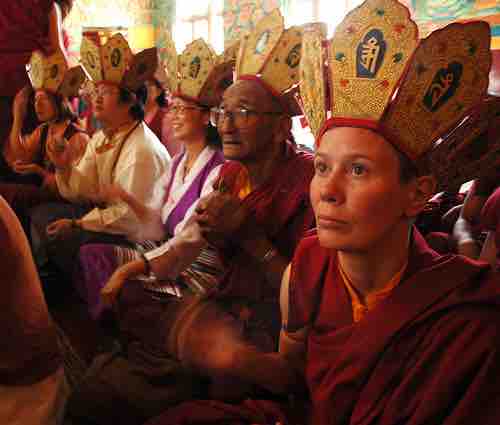Marxist Theory of Religion
The social-conflict approach is rooted in Karl Marx's critique of capitalism. According to Marx, in a capitalist society, religion plays a critical role in maintaining an unequal status quo, in which certain groups of people have radically more resources and power than other groups of people. Marx argued that the bourgeoise used religion as a tool to keep the less powerful proletariat pacified. Marx argued that religion was able to do this by promising rewards in the after-life, instead of in this life. It was in this sense that Marx asserted the following. "Religion is the sigh of the oppressed creature, the feeling of a heartless world, and the soul of soulless circumstances. It is the opium of the people...The abolition of religion as the illusory happiness of the people is the demand for their real happiness" (p.72). In this passage, Marx is calling for the proletariat to discard religion and its deceit about other-worldly events. Only then would this class of people be able to rise up against the bourgeoisie and gain control of the means of production, and only then would they achieve real rewards, in this life. Thus, the social-conflict approach to religion highlights how religion, as a phenomenon of human behavior, functions to maintain social inequality by providing a worldview that justifies oppression.
It should be reiterated here that Marx's approach to sociology was critical in the sense that it advocated for change in the world. This is in stark contrast to other scholars, many of whom pursue knowledge for knowledge's sake, and lack overt political aims. Because Marx was committed to criticizing the prevailing organization of society during his time, he took a particularly aggressive stance towards religion. He believed that it was a tool of social control used to maintain an unequal status quo, and that it should be abolished.

Religious Buddhist Gathering in Tibetan Monastery
Tharlam Monastery of Tibetan Buddhism